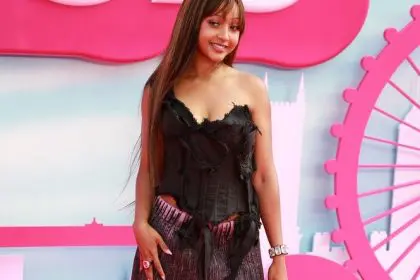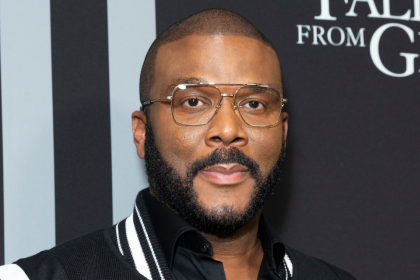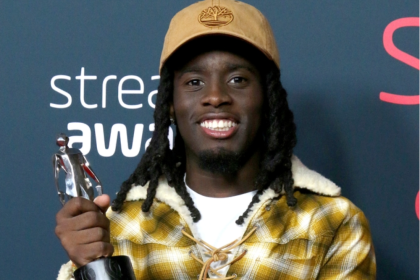How Southern women are reshaping rap’s future

The hip-hop world is in the midst of a transformative era, with Southern female rappers emerging as forces to be reckoned with. What started as a small movement has now grown into a cultural revolution, reshaping the genre’s landscape and opening doors for diverse voices in rap music. This article takes a closer look at the journey of Southern women in hip-hop, their growing influence, and how they’re changing the music industry for good.
The new era of Southern hip-hop
Southern female rappers have come a long way from being underrepresented in mainstream rap. Today, they are at the forefront of the genre, breaking records and commanding attention on a global scale. This shift not only reflects the growing diversity in hip-hop but also signals a broader cultural change in how women are viewed in the industry.
These artists are now regularly selling out major venues, from arenas to music festivals, and are bringing their regional sounds to an ever-expanding audience. The commercial success of Southern female rappers demonstrates that hip-hop fans are craving fresh perspectives, pushing the genre beyond its traditional boundaries.
Breaking arena records
Southern women in rap have made history with their ability to sell out arenas and attract diverse audiences. These powerhouse performers are no longer just underground favorites but are now touring globally, commanding premium ticket prices and curating immersive concert experiences.
Their performances are more than just shows; they’re celebrations of culture and creativity. These rappers aren’t just performing songs—they’re building communities with their fans, offering a space where people from all walks of life can connect through music. The loyalty of their fanbases has also contributed to the exponential rise of their careers, ensuring that every tour stop feels like a major event.
Evolution of representation
Southern female rappers are helping to redefine the representation of women in hip-hop, transforming an industry that has long been male-dominated. In just a few years, these artists have achieved massive visibility, not just in music but across various media platforms.
Their increased presence in the media is a reflection of the larger cultural shifts that are happening in the entertainment world. These women are using their platforms to speak on issues ranging from gender equality to social justice, and their voices are resonating deeply with fans. They are also gaining greater control over their music and careers, allowing them to maintain authenticity and creative freedom.
The growing influence of Southern female rappers isn’t just a momentary trend; it’s a movement that continues to gain momentum, one that celebrates artistic freedom and individuality.
Musical innovation
What sets this new wave of Southern female rappers apart is their ability to push creative boundaries. These artists are known for their innovative approaches to music, incorporating regional sounds, genre-blending experiments, and unique stylistic choices that reflect their personal experiences and cultural heritage.
They’re also taking risks with production, often combining traditional hip-hop with influences from pop, R&B, and trap, which has led to a distinct, cutting-edge sound that resonates across genres. The result is a diverse musical catalog that has made these women stand out in a crowded industry. Authentic storytelling is another key element in their music, with lyrics that not only entertain but also engage listeners on a deep, emotional level.
Legacy and influence
The current success of Southern female rappers owes much to the legacy of those who came before them. Pioneers like Mia X, Trina, and Queen Latifah set the stage for today’s artists, challenging the norms of the industry and creating a space for women to express themselves in ways that had previously been limited.
These women didn’t just rap—they built empires and broke down barriers, opening doors for a new generation of Southern women to enter the industry and thrive. Today’s Southern female rappers are continuing that legacy by influencing the sound and direction of modern hip-hop, proving that the foundation laid by past legends still holds strong.
Commercial impact
Southern female rappers are dominating the charts in a way that’s never been seen before. Their singles top music charts, their albums are streamed millions of times, and their merchandise is flying off the shelves.
Beyond music, these artists are also forming lucrative brand partnerships with companies across various industries, solidifying their status as cultural icons. Their influence stretches beyond the music scene, as they become trendsetters in fashion, beauty, and lifestyle, further cementing their place in mainstream culture.
Artistic growth
While Southern female rappers are gaining commercial success, they’re also evolving artistically. Their recent music reflects a maturation in both their sound and lyrical content. Many of these artists have honed their craft over the years, resulting in more polished production values and deeper, more introspective lyrics.
These artists are also experimenting with new sounds and collaborations, working with producers, musicians, and artists from all over the world. This openness to cross-genre collaborations has led to genre-defying tracks that blur the lines between hip-hop, pop, and beyond, expanding the possibilities of what hip-hop can be.
Cultural significance
This rise of Southern female rappers is part of a larger cultural shift that’s happening in hip-hop and in society. These women are redefining what it means to be a successful rapper, showing that it’s not just about having bars—it’s about having a voice and a platform to tell your story. Their success has sparked important conversations about gender representation in music, helping to create a more inclusive and diverse industry.
They also represent a larger cultural movement in the South, bringing regional pride to the forefront of mainstream music. These rappers are giving voice to the stories, struggles, and triumphs of the Southern experience, helping to shape the cultural landscape for years to come.
Future trajectories
The future of Southern female rappers looks incredibly promising. As more emerging talents make their mark on the industry, we can expect to see new innovations, more genre-blending, and even more groundbreaking collaborations. The industry structure itself may also change as these women continue to disrupt the status quo, further pushing boundaries and opening up new avenues for success.
Their influence is already transforming the hip-hop scene, and there’s no telling just how much further they can go. As these artists expand their reach and continue to innovate, their impact will be felt across the globe, paving the way for the next wave of hip-hop talent to follow in their footsteps.
Building community
The success of Southern female rappers goes beyond just their individual achievements. These artists are dedicated to building strong communities, both within the music industry and among their fans. Many of them mentor younger artists, collaborate with up-and-coming talent, and use their platforms to advocate for causes that matter to them.
By fostering collaboration and offering support to others, they’re helping to ensure that the next generation of Southern women in hip-hop will have the tools and opportunities to succeed.
Conclusion
Southern female rappers have taken the hip-hop world by storm, reshaping the genre and pushing it into new, exciting directions. Through their innovative music, growing commercial success, and cultural influence, they are proving that the future of rap is not only diverse but also deeply connected to the South’s rich musical heritage. As these women continue to break records and make history, they’re not just changing the sound of hip-hop—they’re changing its very future.













